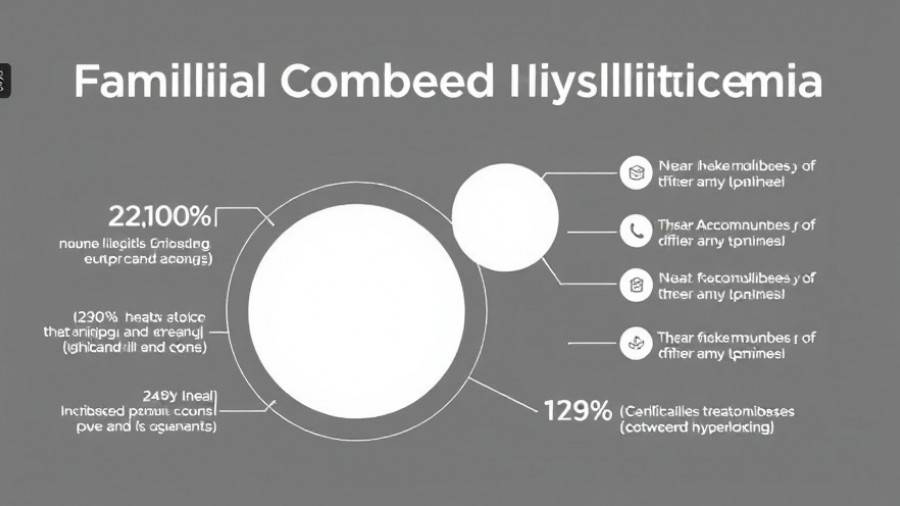
Understanding Familial Combined Hyperlipidemia and Its Impacts
Familial Combined Hyperlipidemia (FCH) is a genetic metabolic disorder that affects lipid levels in the blood, leading to often severe cardiovascular complications. This hereditary condition is characterized by elevated levels of cholesterol and triglycerides, but it can present in diverse forms across different families and individuals.
Key Insights into Familial Hyperlipidemia
FCH is one of the most common inherited lipid disorders, impacting about 0.5% to 4% of the population, with a significant risk of developing cardiovascular diseases such as atherosclerosis and coronary heart disease. Despite its prevalence, the condition often remains undiagnosed and undermanaged, leading to increased health risks. Studies suggest that the disorder may have a multigenic pattern of inheritance, indicating complex genetic factors that contribute to lipid regulation.
The Importance of Early Diagnosis and Management
Understanding familial hyperlipidemia is essential for both patients and healthcare providers. Early detection through comprehensive medical histories and familial screening can lead to timely interventions. Regular assessments of lipid profiles, combined with lifestyle modifications and potential pharmacological therapies, can significantly reduce the risk of cardiovascular complications associated with FCH.
Current Research Trends and Future Directions
Research is ongoing to understand the underlying mechanisms of FCH better and develop effective treatment strategies. Clinical trials are vital in exploring innovative solutions, including genetic testing aimed at identifying at-risk individuals early. The Familial Hypercholesterolemia Canada initiative is one example of how registries can help collect crucial epidemiological data to improve patient outcomes and guide healthcare policies effectively.
Collaboration in Healthcare: A Multidisciplinary Approach
The management of familial combined hyperlipidemia requires collaboration across healthcare disciplines. Primary care clinicians, cardiologists, and lipid specialists must work together to ensure patients receive comprehensive care. Education plays a significant role, as healthcare providers communicate the genetic basis and implications of FCH to patients and families, emphasizing preventative measures and lifestyle choices that can mitigate health risks.
Real-Life Implications for Families Affected by FCH
Families with a history of familial combined hyperlipidemia often feel the emotional weight of potential health implications. Enhanced education, gentle encouragement towards familial screening, and support networks can empower affected individuals to take active steps in managing their health. Not only does this community approach improve knowledge, but it also fosters emotional support during challenging times.
Call to Action: Take Charge of Your Health
If you or a loved one has a history of high cholesterol or heart disease, consider discussing familial hyperlipidemia with your healthcare provider. Early intervention is crucial for managing lipid levels effectively and reducing cardiovascular risks. Together, we can take proactive steps towards a healthier future.
 Add Row
Add Row  Add
Add 




Write A Comment